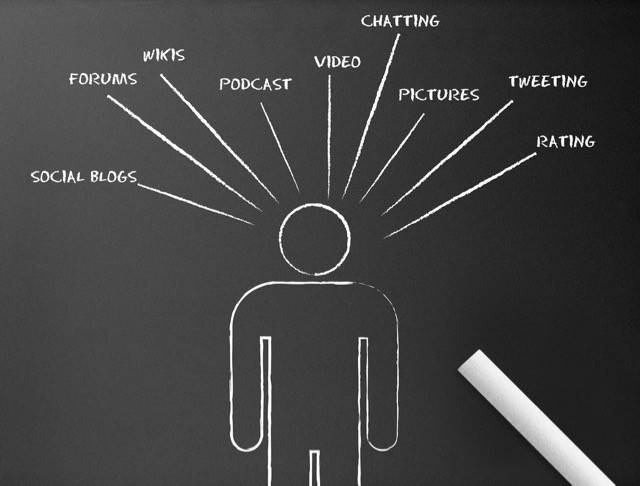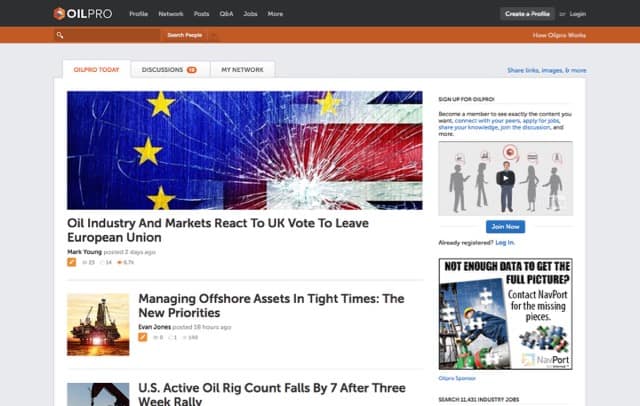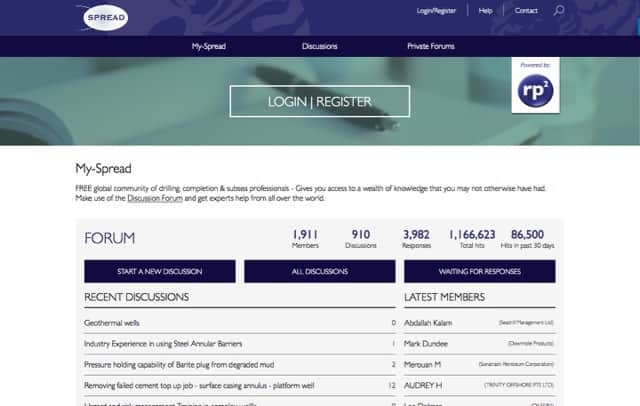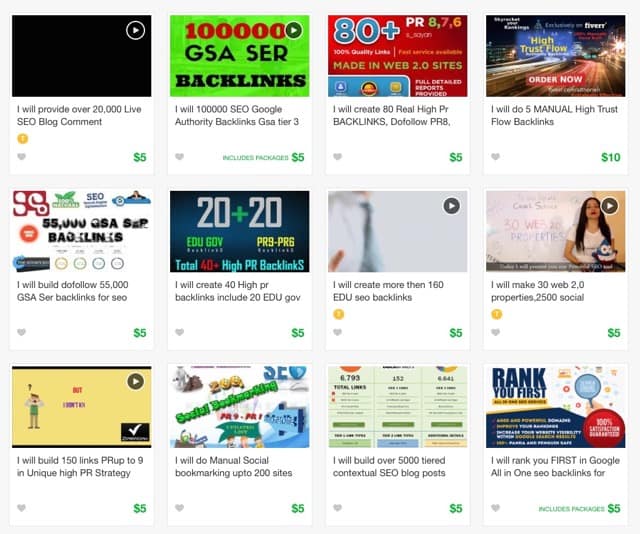Do your companies online and offline messages have integrity?
Do your companies online and offline messages have integrity?
Does your company’s online presence match with its interactions with clients in the ‘real world’?
Does a new visitor to your website get a realistic impression of who you are and what you can do for them?
Some companies who’ve been in business for years seem to see their website or social media accounts as peripheral. They see them in the same way that we might see a side project, somehow separate from everyday business.
In the company head office, the carpets will get vacuumed, the walls neatly painted, and the staff well-dressed. Online, the company website might be old-fashioned, out of date, and with inaccurate or incomplete information. In many cases, sites will malfunction, and be on display, for the world to see.
Is your website even more important than your office?
When someone’s inside your office, there’s a high possibility of them already being customers, or having been referred to you by an existing customer. They’re sold on your product or service already!
Someone coming to your website is less likely to know who you are, so the first impression will be crucial.
Someone browsing online for a company that offers your product or service will click away from a tired, out of date or poor quality site. They’ll keep searching until they find what they want.
They’ll see a competitor who presents themselves online in a professional manner that you display in person. This competitor will get a new client.
It could be that you can offer better value than the competitor. The competitor that you lose business to might even be terrible! They might also be a new start-up company that has no idea and that is destined to fail?
It could be pure luck that they found a good web developer who was able to make them appear more professional and dedicated than you.
The difference in real terms?
- A trail of lost opportunities for new clients, because of the impression your website gave them.
- A portrayal of being second best, in full view of the world.
- A demonstration of a lack of integrity on your part.
- A few thousand pounds or dollars that you could have invested to update your website.
… This trail of lost clients doesn’t just follow behind you on the path that you’ve already walked. It stretches in front of you as far as the eye can see. It continues as long as you stay on this same path.
… The portrayal of being second best, or even being last, would mortify you in ‘real life’. Imagine attending a trade show or presentation and receiving an award for being last. You’d do everything in your power to make sure that it didn’t happen again. Well, I have news for you, the internet IS part of ‘real-life’.
… What’s integrity? Some people think that integrity is doing the right thing or telling the truth. Honesty and morality are friends of integrity, but they are not the same thing. Integrity is where everything pieces together in the best way it can, with no gaps.
Structural integrity does not leak or rattle, and human integrity is where your actions match your values. Business integrity involves you delivering on your value proposition. It also means that your business messages are in sync. You cannot say that you offer the best product or service then have a website that says that you don’t care about your reputation.
… Lastly, modern web design and creating an active online presence doesn’t have to cost a lot of money. If you’re in a competitive market and you want to be number one, then that’s expensive. You might need to spend five or even six figures per month on advertising, SEO, social media management, and so on.
If you’re small to medium-sized established business, and your website is lacking, just spending a few thousand will make a big difference.
It doesn’t have to have custom patented features. It just has to be attractive and informative enough to get your message across to your next client who might not know what you can do for them.
It certainly has to be welcoming enough so that you don’t scare customers away, or demonstrate a lack of business integrity.
If this post resonates with you, and you want to turn away from the path with the trail of lost opportunities, drop us a message, and we’ll see if we can help.
Why you should get your website started ASAP
Why you should get your website started ASAP
This article is for oil and gas professionals who dream of starting their own business
At some point, the dangerous working conditions, monthly rotations and endless flights start to take their toll. What begins as a voyage of adventure can turn into a chore where a more straightforward life starts to look more attractive. One way of making this transition is by starting your own business.
It’s nothing new; the very first employee probably dreamed of being an employer within weeks or months of starting work. That might have occurred 5000 years ago, or even 500,000 who knows?
What’s new is the capability of starting a project on the side. One where you can put in as much time and money as you want. If you were to add one article a month to a personal blog, before long, you’d have a powerful marketing tool. This marketing tool is likely to result in job offers and business opportunities without you even trying, as long as you know your stuff.
Start building your website, instead of merely boosting other peoples

The younger you are, the more likely you are to have used a plethora of online publication channels. The hippest teenagers are publishing messages, pictures, videos, GIFs and blog posts. They are publishing to ten or in some cases twenty or more online channels.
If you’re nearer the end of your life, the chances are that you’ve recently embraced Facebook as a way of staying connected to family and friends in a busy world.
If you’re reading this article, the chances are that you are midway between Tweenage and Twilight…
You’ll understand the benefits of building an online presence, but will be too busy to go to the lengths that an obsessed teenager does. You won’t be uploading selfies to Snapchat or short video clips to Vine every time something happens during your day.
What you’re probably doing is reading, liking, sharing, publishing, and commenting on places such as LinkedIn. You’re helping to build other peoples websites instead of your own!
I’m a big fan of spending time on other peoples websites in conjunction with my own. I wouldn’t dream of helping to add content everywhere EXCEPT my site…

How is the job security situation for you at the moment?
I’d go even further and say that if you’re reading this, you’ll be experiencing some job uncertainty. It’s natural to feel that way based on the regular oil booms and busts.
No matter how good you are at your job, only a fool would think that they’re untouchable by downturns. Anyone can find themselves out of work for an extended period.
Many people in the oil and gas industry have dreamed of going alone and starting their own business because this is the same in every industry. It used to be a considerable gamble, when you go it alone, you lose your income and spend your savings with no guarantee of success. No wonder that so many budding entrepreneurs never do pull the trigger.
Now, in the internet age, online businesses can be started on the side and built as quickly or as slowly as time allows. Published content can attract visitors for years. Sales pages can get swiftly created. Offers can get tested without having to hire staff, rent buildings or purchase inventory.
It has never been easier to take a step or two towards your dream, without losing focus on your main job.
It’s still a challenge to find the time, of course, there are only so many hours in a day. To suddenly free any time to learn about internet marketing or website design can be daunting. People still put off their dream side business.
So, here lies a paradox.
When you’re busy and successful at work, you have the money, but not the time to invest in a new company or online presence for your services.
When you’re out of work, you have the time, but not the same financial runway. You see, it can take a year or two to create a successful online business. Any business (online or offline) can take up to five years to develop into a job replacement.
Being out of work, then starting right at the beginning of the new business runway is a challenge. Starting right at the beginning, with limited capital and lots of pressure, is the result of bad planning.
When hoping for the best and preparing for the worst is the same thing
So, you start your new website today, and it starts to evolve into a very professional looking asset for your future company. Every month it gets bigger, covers more topics, and over time attracts more citations and backlinks. If in a year, you lose your job then you’re already a year into the entrepreneurial journey. There would have been valuable time for you to plan, publish, network and test.
Having a website dedicated to your skills is an asset even if you’re looking for a new job. It’s the most credible showcase for your knowledge and experience that you could create.
You hope for the best, but with two goals in sight. You hope that you keep your job AND that your side business takes off.
You prepare for the worst by getting started on the runway for your new business AND create a place online which shows how talented, experienced and committed you are. One day a future employer may be looking at your website, comparing it to a pile of old fashioned CV’s.
One day your company and website will be five years old, then ten — a much larger resource and showcase, with hundreds of articles and perhaps thousands of backlinks. Your new company will have the implied credibility of age and online authority. That’s even if you haven’t made a penny and have kept your day job.
Every month or year that passes while you are building your website will make the runway shorter when you do eventually make the jump (or get pushed).
Why a Remote Worker Based Outsourcing Company is Better
Taking advantage of globalisation in your business
There are thousands, in fact, probably hundreds of thousands of companies to which you can outsource your online development. We’ve already covered the benefits of using an industry-specific partner in previous posts.
This post covers the benefits of using a company that doesn’t have an office.
There was a time when all companies had offices. The whole company showed up at the same time every morning. There were layers of bureaucracy, oversight and supervision. (From the bottom of the company to the top). Successful companies all had layers at the top too; Presidents, vice presidents, boards of directors and shareholders, all detached from the front line.
This traditional structure isn’t inherently wrong, and there are benefits gained by these companies such as economies of scale, branding, monopoly positions, and so on.
There’s a problem for you, the customer or the client. All of this needs to get paid for inside the pricing structure of what you are buying.
There are skills needed to create your new website, email auto-responder or sales page. These do not need to be possessed by someone forced to sit in the same office cubicle day-in-day-out. Top copywriters and web designers have been seeing the benefits of working remotely for many years now.
If a red hot copywriter says that he does his best work while sitting in his log cabin in the middle of the forest, that piques my interest.
A web designer might say she gets obsessed with new projects.
If she then says it means 18-hour days in the attic, wearing the same pyjamas. I’d love to see the results.
(Who’s bothered about the dress code? Only software code matters in this example).
You don’t have to be an eccentric oddball to work with us, but it might help
It’s not to say that I prefer non-conformists to work with me at my company. If there’s someone like this, who produces amazing work, that’s OK with me. If it’s at a lower cost than an employee in an office cubicle, why live in the past?
Hiring a company that uses outsourced remote staff has some possible disadvantages. It’s especially the case if the company itself is in another country. If you make a terrible choice, your options are more limited.
It will be hard for you to go to the head office and ask to speak to the CEO or Managing Director. You won’t be able to bang the desk and cause an embarrassing scene to get a response. A legal case, if you are not satisfied, will also be severe if the workers are in a different country to you.
These courses of action tend to be ineffective anyway, even if the company is in the same town as you. If you ever get to the stage that you feel the need to lose your temper or call legal advice, you should realise that you made a terrible choice and wear it.
Pursuing negative, energy-draining courses of action might tie up even more of your valuable time and attention. It might be worth it for a shoddy building, but not a website.
Other than in the situations where things go wrong, I can’t think of any reason why you wouldn’t want to use a remote-based company. Where the company is based or not based should be either a neutral factor or a benefit to you as a client.
11 reasons why having remote staff makes sense
A remote working company has the advantage that:
They can scour the earth for the right person for the job, not just the ones who happen to be available in the local job market at the time of recruiting.
They benefit from low fixed overheads such as not needing offices, pension requirements, worker healthcare schemes, and so on.
They operate in a results-based environment. Where coming in on time, having brief coffee and cigarette breaks or other irrelevant metrics are out of the picture. An outsourced worker gets judged on the quality of their work, and the amount they charge for it.
When you have a developer in one country, a copywriter in another, and a social media manager in a third, they can focus on their work. There are no office politics or negative troublemakers to bring the whole team down.
They’re nimble and can hire according to the workload. There are no problematic downsizing dilemmas or regulatory issues. For example, a staff member is there for a ‘year and a day’ which means that the extra day could cause an unfair dismissal suit.
There are no sexual harassments, bullying, favouritism and office romances to get in the way of work.
The workers can’t join together to undermine a manager or the company itself. They can’t group and create a new company while stealing customer information: no mutinies or power struggles.
Due to the remote nature of the work, there are no company superiors to ask advice. This isolation might seem like a disadvantage, but remote workers tend to be expert at using their problem-solving initiatives. Does that old guy in the corner office know more than Google? No. Remote workers join industry forums and private memberships where they can ask advice from some of the brightest minds in the world, not just the company.
There’s far less awkwardness in hiring and firing, and in starting new client contracts or finishing them. This acceptance is because there’s an understanding that deals and staff come and go. Also, it’s easier because we’re unlikely to bump into anyone that we do business with, in the supermarket.
There are excellent avenues and structures in place for hiring remote staff. If I needed ten new web developers, I could find them quickly. It’s far more straightforward than if I were trying to post adverts in local newspapers and job centres. The same applies to any website development, SEO, content or social media related staff.
Technology workers tend to lead the charge in innovation and the latest solutions. This trend is how virtual based work is moving. Why commute and sit in traffic, to be micromanaged and controlled, and work in a mundane routine, when you can work on your terms? Some of the most creative and resourceful people are making this choice. These pioneers are the ones that are confident and bold enough to go it alone. There are the types of people you want on your project, not office drones.
Update on the 22nd Feb 2017: while this post got written with the subtle intention of putting your mind at rest about the fact that WE operate as a remote/outsourced based business… A reader email indicated to us that you might see the benefit in transitioning your business in the same way. While we use outsourcing as a competitive business advantage, we are certainly not experts. Here is an epic post on the topic by someone more expert than us!
Best Communities for Oil and Gas Workers
Best Communities for Oil and Gas Workers 2023
Do you spend much time on industry-related online communities?
If you’re in the oil and gas business, then the chances are that you belong to some online communities that are specific to our industry. The most popular and common ones are LinkedIn and Facebook groups. There are hundreds of such groups, some are location-based, and some are job-based. Are you aware of the best online oil and gas community for workers?
There are many different reasons for wanting to be part of a good network or community. One of the best features of the internet is that we can all choose who we interact with, and these people can be anywhere in the world.
In the oil and gas business, many of us have had the opportunity to live and work in different countries. Online communities allow us to stay in touch with interesting people that we meet on our travels in a way that was almost impossible before.
Here are a few good reasons for being part of industry-related communities:
- Support
- Social interaction
- A feeling of connection
- A source of knowledge
- A chance to help others
- Career opportunities
- Business opportunities
The last two points are of particular interest to us here at Out of the Box Innovations. The quality of our network can make the difference between success and failure, being employed or unemployed. For us at OOTBI, it relates to having plenty of new business come in as opposed to having to cold call for our next customer.
Two online oil and gas forums are head and shoulders above the competition and are the best use of your time if you work in the oil and gas industry. We only have 24 hours in a day, and our time is precious. Unless you’re spending time on social media and forums as a way of zoning out of life, then it makes sense to get the best leverage for your time.
It could be that you’re the type of person that works hard at their job. Perhaps, the last thing that you want to do is spend time online reading and typing about work-related topics. If that’s the case, then still read on, because one of these recommended websites is suitable for use purely for work. It’s likely to help you solve work-related problems and challenges quickly and efficiently. There’s a way of consulting with some of the most experienced minds in the world, free of charge.

Historically, these have been the best places for oil and gas workers to get information and network:
The majority of websites that’ll be of interest to those in the oil and gas industry fall into a few categories:
Company websites
These have contact information, product specifications, guides, press releases and perhaps a few resources. They’re not usually places that have you wanting to come back for more. On average, there’s not much that could get described as overly interesting, lively or particularly informative. They do their job though, and if you’re looking for any particular product or service, you can find out about the companies who supply it.
News websites
We get our news from a variety of sources depending on the way that we like to digest it. There tend to be tiers of accuracy, quality, and purity of information. There are only so many actual industry events in a given week, and they tend to get covered by the mainstream media first.
Then, this same news is written about by bloggers, industry experts, and then the majority is ‘cut and paste’ type regurgitated stories. At the bottom of the pile, you get inaccurate and misleading news articles that are written simply for clicks or shares.
If you see headlines such as:
Saudi Arabia is about to destroy the US oil industry completely
The oil industry is about to add a million jobs
Oil is about to spike back to $100 for this black swan reason
Then don’t complain when your eyes are insulted by a load of low brow nonsense.
There’s nothing on ‘crudeoilnewsandgossip.com’ that you won’t see on Reuters or CNN first.
Generic Social Media Channels
We all have our favourite social media channels. There are larger communities of oil and gas workers on Facebook, LinkedIn, and Twitter. Here we can see whatever we want in our news stream. Some people have a preference for mixing their industry news with sports results, soft porn or whining and complaining.
Those who are good at blocking, unfollowing and pruning their stream will get the best results from social media. A skilled practitioner can get much of what they need from the previously mentioned social media channels. There’s a tendency for LinkedIn to be a little recruiting biased, and Facebook to be a more tabloid type read. Twitter has an art to it that can be very rewarding for those who master it.
Do you want real information, that’s industry-specific and can help answer questions and solve problems? Then you ought to be spending time on our following two recommended websites though.
STOP PRESS! Our first recommendation of Oilpro is no longer in existence. This following section and the rest of the article will get left for posterity, and here’s an article where Jason says goodbye to Oilpro. At the end of the next section, there are two brand new suggestions for up and coming oil and gas forums.
Recommendation number 1: Oilpro.com

Oilpro.com has taken the oil and gas industry by storm; the rise in visitor numbers has been staggering. It’s neither a social media site, or a news site, yet it takes the best of both and does the job in a way that other websites don’t.
A downside of official news sites is that the content is written by reporters who by definition, report a different side of a story to those who create the event or are directly affected by it. We all hear of plenty of situations where ‘the media got it all wrong’ not just from celebrities, but from industry leaders in various industries.
On Oilpro.com, many of the blogs and reports get written by industry insiders and primary sources. This insider slant is different from when a reporter approaches them as a ‘source’. On Oilpro, it’s easy to find news and opinion that’s written by those who make the news. (Or are very close to the developments in the oil fields or on the rigs).
Another problem with many of the mainstream news websites are the rowdy comments sections. These comments tend to get dominated by trolls, the clueless, and those with a political agenda. An actual company or industry representative would be fearless and foolish to get caught in that kind of crossfire.
On Oilpro.com the comments section is often just as informative, and sometimes far more entertaining than the post itself. There is a hardcore of passionate, experienced and intelligent people who spend their spare time for the betterment of the industry. (You know who you are, thank you! Oh and thanks for visiting my humble blog post too. Cheers).
Want real oil and gas industry news from bonafide experts? Then, have the information fact-checked and debated below in the comments section! There’s no other place online to do this as far as I’m aware.
I often see Oilpro getting referred to as LinkedIn for the oil industry, and I think that this is a good analogy. Perhaps a more accurate definition would be:
LinkedIn on steroids for the Oil and Gas Industry.
Note by Jason as of the 27th of June 2018:
For the last couple of years, I’ve been monitoring different oil and gas websites that could get termed as forums or communities. Until recently, the only suitable alternative to Oilpro was LinkedIn.
Now, I’m happy to announce that Oilprice.com has started a community that’s moving in the right direction: https://community.oilprice.com/.
Also, Steve and I at NatResPro.com have also started a community as well. Unlike Oilprice, we’re bootstrapping and trying to find the time to get traction among other projects. We’d appreciate you dropping by to post a comment or 2 though! https://natrespro.com/community/
Recommendation number 2: My-Spread.com

If Oilpro is LinkedIn for the oil industry, then perhaps my-spread.com is the equivalent of Quora. Quora.com is an open forum where it is free to sign up and create a profile. Then you can post questions and answers on any topic in the world. People who spend time there are motivated by being helped, and being helpful. This knowledge ‘gift exchange’ forum is user-generated, and people do it for genuine reasons.
For those who’ve not used Quora.com, it is like Yahoo answers but on a much higher level. The quality control is high, and spam and irrelevance get minimised. It’s information sharing in its purest form. You can check the profile of the person replying to see how experienced or knowledgeable they are. You can see if they’re qualified enough to answer your question.
My-Spread.com is the leading problem-solving forum for the oil industry. While it gets geared towards engineers, geologists and drilling managers, topics from any planning or operational side of the industry are there.
My-Spread is a no-nonsense, efficient problem-solving machine to which there is no other comparison on the web. Every single new member and organisation is personally reviewed and vetted by more than one moderator. Each question, answer or comment gets emailed to the site owners and managers who will edit or weed out anything unsuitable right away. Then these updates go out on a daily email alert to almost 2000 high-level technical problem solvers.
It’s a bit like an ‘almost live’ radio show that gets aired shortly after recording. It is hot-off-the-press but pre-moderated for relevancy and quality.
Because of the quality control and efficiency built into the system, you as a user will experience minimum friction in the process. If you post a question, you will see in the daily update the person has answered it. You only need to log into the site if you physically want to search for or type something.
This ease of use is a boon to you while you are working on-site. If you can check your email, you can get the answer to your question. There’s no need to go to the website to look at responses.
Conclusion: the best oil and gas forums now
If you’re not already using Oilpro and My-Spread, then check them out. We all probably spend a bit too much time online. Have you ever gone onto Facebook for five minutes and found yourself looking at junk 30 minutes later? Have you ever logged off and felt that your time had gotten wasted? This feeling is unlikely to happen when you use either of these two oil and gas forums. If by chance you log on and don’t find anything substantial that day, you can still be happy that you didn’t miss anything. If something important is happening, or if technical problems can be solved, this will be happening on Oilpro (Oilprice or NatResPro) and My-spread.
Disclosure: My-spread.com is a client of Out of the Box Innovations. This review was not solicited by, or paid for by the owners of my-spread.com. OOTBI has no commercial relationship with Oilpro. This article got based on the opinion of the writer, and the words would be the same regardless of any client relationship.
Read This Before Choosing A Marketing Team For Your Oil and Gas Company
Read This Before Choosing A Marketing Team For Your Oil and Gas Company
We wrote this guide for small to medium-sized oil and gas companies, but the principles apply to any business owner who’s planning to improve their online presence. First of all, make sure that the basics are covered.
Your new oil and gas marketing agency needs to know:

Whether you choose a plain vanilla online marketing consultant or a specialist oil and gas marketing company, they need to understand:
- Which search keywords to target.
- Who your competitors are and how hard it will be to overtake them.
- The status of your current website and how it competes in the industry. Particularly concerning optimisation and quality.
- How extensive your social media reach is and how it compares to your competition.
- Content opportunities that are suitable and relevant for your business.
- Whether they have a copywriter who can write in your company’s ‘voice’.
- Suitable tracking, measurement and reporting of progress in terms of relevant KPIs.
- The estimated project time, work spec and desired result.
No one can be sure of the exact ROI on their future online efforts. The right online marketing agency will know approximately what they are going to do, how long it will take, and how much it will cost. You need a list of deliverables so that you can refer back later.
You won’t be able to get a guarantee (from a reputable agency) that you’ll be on the first page of Google for your product or service. You can get a commitment to ten new articles or twenty new quality backlinks that they can show to you in a report.
Do they speak your language?
This question has different nuances. Most of the world speaks English in business, but is it their first language? Communication problems can cause days or even weeks of work that go in the wrong direction.
More importantly, do they speak the language of your business and your industry? If the marketing agency you choose writes anything on your behalf, then this can be a problem. Every industry has its jargon and tone. You don’t want your company’s social media or website updates to come across as out of touch.
Do people in your sector of the oil and gas industry have suitable B.S. sensors? We know that they do!
These reasons are why your shortlist should only include specialist oil and gas marketing companies.

What do they advise that you do?
Consider that you’ll be working with your chosen oil and gas marketing consultant or agency for months if not years. Things could turn ugly quickly if you jump into something too soon. The budget, time frame and result expectations must be agreed upon and understood. That’s the minimum requirement. Ideally, you and your new marketing company will have aligned knowledge, interest and perhaps even dreams for the future.
The marketing company that you send an enquiry to should be happy to explain everything. What they will do and why they plan to do it. If they can’t explain it clearly, then it might be that they are trying to confuse you, or even worse, are not sure themselves.
Depending on your niche in the oil and gas business, SEO might be a waste of time. You might manufacture a brand new patented widget that no one knows about, and therefore won’t look for with an internet search.
Likewise, there are many things that people don’t search for online. Many companies have long-term relationships with suppliers, and they already know where to go.
In this situation, social media might be a good focus. The most straightforward win will be to make sure that your home website is as professional as your product or service.
It could be that a professionally designed downloadable instruction manual will be more valuable than 500 more followers on Twitter (for the same marketing spend).
If after listening to their suggestions you are not entirely convinced, keep looking.
Look at their portfolio
Do they have existing clients in their portfolio who have businesses like yours? If you own a Mercedes, then you probably don’t want to bring your car to the Nissan service centre. It makes sense to use people with specialist experience.
When there are thousands of SEO, social media, and website management companies in the world, why pick one whose primary experience is in local flower shop SEO? Or social media marketing for hotels? An oil and gas marketing firm is far more likely to hit the ground running and already know what to do.
If you see that the specialist online marketing company has clients in your industry, that’s good. If some of these clients are known to you and you can check a reference or testimonial then you have already hit the jackpot, stop searching!
Watch out for generic logos that get shown on the homepage. If you see logos of major news agencies or online media outlets, this might indicate that the company has been mentioned there, not that these behemoths are clients.
Dig deeper if a company representative says that their client base is private. Client privacy might add up in the sexually transmitted disease industry, but not in the energy and resource business. We all recognise a good job done and are happy to send others in the right direction. Also, a link to the client’s site helps promotion and SEO, so there is no reason why such information would be private.
Goldilocks Prices
As we all know, prices are only one part of the equation, and in the business of online marketing, judging value over price is more critical than in many other parts of our business.
At the other end of the scale, some of the top SEO companies in the world have a $50,000 per month minimum. Here’s a link to a great infographic showing everything you need to know about SEO agency pricing and contract details! Here’s an accompanying blog post for those who prefer to read the old-fashioned way.
Did you know that you can get SEO, social media tasks, and graphic design can get done for $5 per job? On Fiverr, there are some great deals to be had, but $5 SEO deals are more likely to get your website de-listed than on page one of the search results.

A wise starting point would be to look at the size of your company, your current sales and marketing budget, and the progress that you’ve already made online. We advise that you ask the potential marketing company to quote the minimum amount it might cost, to start to see a result.
Social media and SEO is a longer-term strategy, where it can take time to build traction. You don’t want to spend $10,000- $20,000 per month (at the top end) to find that it’s not working after a year.
Remember that you can always scale up your efforts when you become confident in the result. It is impossible to recoup the wasted money from a misdirected campaign.
Be wary of guarantees and promises
If you’re looking at two web marketing companies and one is telling you:
We guarantee to get you on the first page of Google for these 5 keywords
Then the other says:
Results vary, but you will see improvements. At any time we are happy to explain what we have done, and why we are doing it
Which would you choose?
We recommend the latter. The reason is that it’s impossible to guarantee a first-page ranking for keywords that matter to your business.
‘First-page guarantee’ deals are full of loopholes and tricks. There will be simple keywords to rank for, ones with little search volume or commercial intent.
For example, look at the differences between these two niche-related search terms:
Buy shoelaces online
Free shoelace tying tutorial
Which is worth ranking for in the search engines? If you’re in business to make money, then you’ll want a visit from someone who is planning to buy something, not someone looking for a free tutorial.
Another way of ranking for a keyword is by using software to spam backlinks to your site. This automation is one way you get your site penalised by search engines.
Another example of where it is good to avoid guarantees is where you can purchase some ‘likes’ or ‘followers’ that you could receive on your social media pages. There’s such a thing as fake accounts or bot accounts. Even real, human-made profiles can get made in bulk.
If you are selling wellhead valves, and have a Facebook account, it is likely to have relatively few followers. You could get tens of thousands of ‘likes’ in the next few days by purchasing Fiverr gigs.
Even if these are ‘real followers’ how many will give a damn about valves? None of them. It is a fool’s errand.
Be wary of companies that try hard to close you, or seem too keen from the outset
A quality online marketing company will want to understand your business and objectives. Sometimes the desired result is unrealistic. For example, if your industry niche is tiny, you won’t end up with a high volume of website traffic. If you’re a minor player in a very competitive sector, first-page rankings might be practically impossible.
Find out who your go-to person is and speak with them
Have you ever been sold to by a professional salesperson and then passed on to a dummy that causes you stress and frustration?
We all have, it’s vital that you get along with and can communicate clearly with the company representative who’ll be your go-to person. You should establish a relationship with them before you pay any money.
In the online world, some agencies are headed up by charismatic leaders, who then outsource the work to clueless idiots. Sometimes people who appear to be clueless can do good work, at the specific task that they are assigned. You need some intermediary who can act as ‘mission translator’ in this situation.
Ask if they can share an analytics account and be prepared to explain things
If your traffic doubles, or halves, how will you know? If your online marketing specialist gets you ranking for a keyword, how will you know whether it has five people searching for it per month, or 10,000?
You ought to ask up-front whether you can share a Google Analytics account, and a Webmaster Search Console account with them for your website.
Then when results get reported, you can double-check them, and ask for explanations as to the importance of the results. None of these analytic consoles is that hard to understand if you can be guided through them by an expert.
Look at the experts ‘body of work.’
It’s possible that the website of the agency you are looking at was created by a different company altogether. Perhaps all of the information on it was written by a professional copywriter?
Imagine two restaurants on the same street, who both decide to get a website created or updated. One restaurant owner has a budget of $2000, and the other has $20,000 to invest.
Two questions:
- Which restaurant serves the best food?
- Which restaurant will look like it serves the best food according to its website?
Don’t take anything at face value. If a company is marketing itself as a specialist online marketing agency, then they are calling themselves experts. This statement is true whether they say it or not.
If they specialise in the oil and gas business, then they’re effectively professing a secondary area of expertise.
Is there anything to back this up? Other than a helpful-looking website?
These are the types of things to look for:
- Blog posts that give you ‘aha’ or ‘hell yeah’ moments.
- Published books on industry-relevant topics.
- Speaking at events, or having a stand at trade shows.
- Profile(s) on LinkedIn that have many of the same people as you do in your network.
- Client testimonials from others in the industry.
- A portfolio of past clients in the industry.
- Online teaching or resources that benefit others. (For example, an industry-related forum, FAQs, how-to guides, glossary, technical manuals etc.
- There’ll be other things that send quality signals about the company that you’re investigating. The more credibility and industry-related links, the better!
Discard the possible agency immediately if you catch them using pressure, misdirection or untruths.
Immediately.
If someone says that they’re booked up for the rest of the year, but might be able to fit you in then perhaps congratulate them. But then find an oil and gas marketing company that’ll have the necessary time and attention for your project.
If someone tells you that they are a Google or Hootsuite partner, then ask them to explain how then verify what they’ve said.
Some companies offer courses, certificates or accreditation if you go through a series of online exams. Some of these courses cost $200 or less. Does this make the person who took the course an actual partner? Not really.
If someone tells you that there’s a discount that will disappear on a particular day, consider running a mile. Are they paying their SEO person 30% less for another 48hrs? Is their electricity bill going up after the special offer ends? No.
Unless they can immediately explain the discount in a way that makes complete sense, walk away. (We can’t think of a legitimate reason to put you under pressure).

Will the owner talk to you?
Try to speak to the owner of the agency. After all, this is the person that you will be trying to reach if the project goes wrong. You need to get a commitment and a good feeling from the person at the top.
Sometimes business owners get detached from their business, and the company loses its best and brightest employees. This point is the stage where things start to go downhill. This process can happen quickly or slowly, so you might be one of the final new clients of a dying company.
Try to Skype the leader, or at least get some personal conversation going, even if it is email only. The head of the company might take a particular interest in your project, and will feel more obliged to answer to you later.
Ask as many questions as possible.
How many questions?
All of them, whether that is 10, or 110, ask every question that you can think of so that everyone is on the same page. If the person you are dealing with can’t or won’t answer all of your questions, then it is better to find out before you have made a deal with them, not after.
If you can’t think of any questions to ask, here are a few to consider:
- Why should we hire you?
- Who is your main competition?
- Are you better value than them?
- Why?
- Can you handle our contract?
- Do you have backup staff in case of sickness or turnover?
- What work do you do in-house, and what do you outsource?
- What do you know about our company?
- What’s the single most significant improvement that we could make online?
- What software tools do you use?
- Do you follow Google guidelines and best practices?
- Explain to me what they are?
- Will you provide us with a report or list of backlinks that you have built?
- Will you tell me exactly what changes you have made to our site?
- How can we contact you?
- When can we contact you?
- How often can we contact you?
- If we don’t contact you, how often will you contact us?
- What are your payment terms?
- How can we terminate the contract?
- How can we measure the results?
- Will you give me reports, not just on results but on the work done to achieve them?
- How will what you do fit in with what we are doing already?
- How much do you think we can achieve?
- If you were us, would you be excited about the online future of our business?
- Explain why?
So, well done for getting to the bottom of this enormous post. This page is one of the longest posts on our website and one of the most important too. If you want to find out more about how we can help you as your next oil and gas marketing agency, then please contact us.
We’re All Experts, and Complete Novices Too!
We’re All Experts, and Complete Novices Too!
Hi! I’m new around here!
I’m relatively new to the oil and gas industry. While my clients, partners and business associates have decades in the industry under their belts, I’ve about a year.
A difficulty that I’ve found is in trying to ‘fit in’ or join conversations online when I sometimes know little or nothing about the topic discussed. This barrier is not the case with general issues such as oil prices, economics or politics. It’s when I read more technical information.
I’m the kind of person who likes to deep dive and tries to understand as much as possible about the business. While I’m learning fast, there’s so much to learn. I sometimes hold back from asking a question for fear of appearing foolish or being seen as a ‘NEWB’.

It’s not shyness
I don’t have a fear of writing or communicating; I’ve been writing, publishing and creating websites for the past few years. These are skills that I bring to the table for my business partners. (Who are among the best in the world at what they specialise).
This last point has to lead to an epiphany for me, one that I think we can all relate. By sharing this realisation, I hope to help other people. (Those who also hold back from joining online conversations that are not directly related to a core area of expertise).
We’re all experts in a relatively small sector of the oil and gas industry, and novices in most other areas.
I sometimes see comments on social media made by people who are involved in the upstream sector who are respectfully corrected by the downstream guys and vice versa. Someone who has only worked in Oklahoma is unlikely to understand the culture of the society of Saudi Arabia, how could they?
It’s one of the main benefits of the internet that we can publish our opinions and questions and that very often it is truth and reality that prevails. In conversations at the local bar, social club or golf course, it’s likely that we’ll talk to people who have the same opinions and knowledge as ourselves. This cliquishness leads to ‘mutual admiration societies’ and ‘private pity parties’.
It’s terrific to find places where people from all over the world congregate. With every possible skill set and career history, they can join together to make sense of the industry. It’s invaluable.
Many titans of industry are famous for describing themselves as ”good pickers of men” (or words to that effect). They looked for people who were smarter than they were, for each particular job role.
I was never the smartest guy in the room. From the first person I hired, I was never the smartest guy in the room. And that’s a big deal. And if you’re going to be a leader – if you’re a leader and you’re the smartest guy in the world – in the room, you’ve got real problems. Jack Welch
They achieved greatness by putting together good teams of people with specialist skillsets — groups who collectively got the job done better than competitors.
Each specialist knew that they didn’t know everything. They certainly didn’t know more than the people who were already performing other roles in the industry. This mistake we see in politics, that a leader becomes an ”expert on everything” and makes decisions that don’t make sense to people who know what they are doing.
This a sign of a good leader and a valuable team member. Someone humble enough to realise that they are experts in their areas, and novices in most others.
Which brings me to my point…
I now realise that I need to stay humble and curious. I can then post in online groups on topics that are not part of my core expertise. I can stand with the self-respect in knowing that I’m an expert in some areas but am keen to learn about many other regions.
The best technical forum in the oil and gas industry is incredibly in-depth and helpful are suited to industry experts. Other industry-related sites have a trove of information for anyone who wants to learn, at all levels.
If you’re reading this and feel the same way as I did, I encourage you to interact more. Get more value from the communities that you’re following. You can add value in the areas that are part of your core skill set or experience.
If everyone acts this way, then more value will be given and received, more issues can have the light of knowledge shined upon them. This transparency will help in the evolution of the industry for future generations.
This philosophy does not just apply to the oil and gas industry but every aspect of life.
… Any time that someone has something to learn and someone else has something to offer.
The internet has its benefits and challenges, but the capacity for the public sharing of information between individuals is very best that the internet itself has to offer humanity.
Why should you comment on industry blog posts and articles?
Why should you comment on industry blog posts and articles?
In the second half of this article, you’ll discover an opportunity to increase the amount of attention you or your company can garner online. First, though, some background is needed to explain the problem, so that the solution makes complete sense.
The main problem with social media
We live in an age where it’s harder than ever to get noticed online, to get attention from customers, clients, employers and peers. Social media, in particular, has created a more significant opportunity to get seen. At the same time, there’s a considerable amount of noise that hinders valuable messages from getting through.
While attention seeking for its ends is evidence of a character flaw, there are plenty of times where getting attention is essential.
For example, if you:
-Are an experienced individual who’s competent and hardworking, but happens to be in-between work contracts, you’d like to get noticed while contributing online. Your valuable inputs to group discussions can be ‘crowded out’ by too many novice questions and spam posts.
-Are an individual who genuinely wants to help others by sharing a wealth of experience and lessons learned, it can be disheartening when you get little response. At the same time, you get faced with cat videos or unfortunate accident videos ‘going viral’ and wonder where the world is heading.
-Represent a company who has a valuable product or service that’s struggling to get traction or increased market share. It makes sense to explore every opportunity to get the message out. Companies can face the same challenges that individuals confront.
A problem that webmasters are finding
At the same time, many blog owners and webmasters complain that they get few comments on their website anymore. The massive growth in social media has resulted in the same number of visits to sites, but very little interaction in the comments section.
People prefer to join conversations on social media, rather than being the first to post after a regular article on a website. It’s understandable, as most people don’t like to be the first to do anything in life. Many also fear the chance of a wrong impression in case their comment isn’t well received.
You can help to solve both of these problems at the same time!
Yes, you personally.
The solution is to leave comments on industry related websites

If you take some time to make comments on industry-related websites and blogs, you’ll achieve far more benefit. (Than making those same comments on social media).
Here’s why:
Anyone who visits that same page after you will see your comment. If you’re in the oil and gas industry, yours will likely be one of only a few comments. Often, yours will be the only comment!
You’ll have centre stage to educate, amuse, enrich or entice people to come and see more of what you have to say. Over time, more and more people will become familiar with your name. This exposure will increase the chances of your CV standing out in a job application, or your company messages having a higher level of familiarity.
In your name or profile picture, a link can go back to your blog or company website. This backlink has the benefit of driving visitors straight back to your site. There’ll also be SEO authority benefits in that an industry-related backlink will get created. A backlink from an industry-related website has more SEO value than a social media link. A link to your blog with only one click of the mouse is more likely to lead to traffic than your social media comment. Social comments get nestled among hundreds on a social media stream, with a link that only leads back to your profile.
Action steps, do this today!
You need to do 2 things:
Set up your profile so that your profile picture and link will show up on the comments you make.
You can set up a profile on Disqus.com so that you can comment on websites that use this system. The most important place to set up a profile is on Gravatar.com
The Gravatar system got created by Matt Mullenweg, the founder of WordPress which is the most popular website management system in the world. What Gravatar does is that when one of your comments includes your associated email, it populates your profile picture automatically.
Your Gravatar profile can also have plenty of information about you, including all your social media links, and so on. You can also upload your picture.
Once you’ve created a Gravatar picture, each comment that you make will get reinforced by your image. Everyone reading your comment can see that you are genuine and standing behind your words.
Find some websites to leave comments
When commenting on an article or blog post, there’ll be some login system. The most common ones are WordPress, Disqus, and Facebook commenting systems.
There’ll be benefits in posting useful comments on any industry-related website or any commenting system.
… The best ones to look for are the ones that are the simple ones that ask for your name, email, and website.
If you’re in the oil and gas business (as many of our visitors are) then here’s a list to help you get started:
http://blog.schneider-electric.com/oil-and-gas/
http://www.albertaoilmagazine.com/
http://www.drillingcontractor.org/
http://www.oilholicssynonymous.com/
http://www.evaluateenergy.com/index.html
http://theamericanenergynews.com/
When you comment on someone’s blog, it’s usually the case that your comment will get held in moderation. One reason for this is the amount of software-generated spam that gets posted to most blog sites. This spamming is done to create brand citations and links back to the spammers’ site. Another reason is, so that irrelevant, inappropriate or abusive comments never end up being published. When the blog owner or webmaster goes through the comments and decides what to delete, a profile picture helps the chances of approval.
Other people are more likely to interact with your comment if it looks like a human wrote it — people like the personal touch. Especially online where communication can feel impersonal. Even if you’re dealing B2B, obviously your future customers are people too!
Sometimes a comment field has a choice of whether to log in with Disqus, Facebook, Twitter, or several other software options. Have you ever typed out a comment that disappears because the login failed? If there’s an option to enter your email address and the home website, it saves time and stress. If you’re already logged in to your Gravatar/Wordpress account, it might keep you from logging in with a different account as the active login will get detected.
Your Gravatar account itself is a page on the internet where you can have links to your blog, website and social media accounts. If online omnipresence and reputation management are essential to you. Fill out your Gravatar account fully and have another positive internet billboard to advertise yourself and your company.
Your Gravatar only needs to be set up once, and your profile page and picture can help you permanently.
The most significant benefit in commenting on blog posts and articles is that search engines will index these pages and visit for many years to come.
A helpful comment or insightful observation from you today could get read by business partners, peers, or employers many years from now. This exposure is in stark contrast to social media comments that disappear in the stream, never to get found again.
PS If you’ve a website or blog that accepts comments, feel free to mention it below in our comments section!
Don’t choose between quality and quantity – choose value in your social media posting
Create the right impression on social media
How we ought to post, and how often we should do it was a topic recently discussed here on the blog. Most people and companies don’t post enough content to get attention, and a few post way too much and risk getting seen as spammers.
The best strategy is in finding a balance between posting as often as possible.
(because most connections will not see most of your posts)
– But not letting the problems of volume occur.
(Problems such as posting irrelevant posts, or posts with insufficient accompanying notes attached).
If we listen to ‘social media mentors’, they’re likely to have guidelines. For example, it’s common to see standard recommendations of posting between two and ten times a day, with the posts spaced out by using software such as Hootsuite or Buffer.
This frequency is general advice and is good advice. If we’re busy with other things (aren’t we all?) we can fall into the trap of posting articles that are uninformative or off-message. We attach short notes to the post, which ought to be a guide and conversation starter. With time pressure, they can turn into one-liners (so we can post to Twitter and LinkedIn at the same time).
The problem is that posting can get sloppy over time. Many of your followers won’t tell you that your message is becoming less relevant to them.
So, how often to post on social media?

The answer is that we should post as often as possible with the following caveats:
The article, diagram, video or image must be able to stand alone, valuable in its own right. It should incite some positive emotion in you. If you’re in touch with your peers and customers, you’ll instinctively know what offers value. This value can change peoples lives, or be only for entertainment, but it has to provide some reward of seeing it.
It should be relevant to your audience and network and demonstrate your personal and brand vision and integrity. It could be that what you’re posting isn’t precisely niche related, but likely to still appeal. For example, if you’re in the fitness industry, your audience is expected to be interested in diet and supplements. If you’re a business conference organiser, your audience might also be interested in business travel topics.
The post must have some accompanying explanation of why you’re sharing it. A ‘take a look at this, you won’t believe your eyes’ will not cut it. Saying that something is a ‘good read’, or ‘had you in stitches’ is not sufficient, even if it’s true. If people are on LinkedIn, it’s because that is the choice they have made with their time. Your link away from LinkedIn ought to be worth the effort or people will be annoyed. If you don’t have a compelling enough ‘hook’ then no-one will click your link anyway. This ‘hook’ should involve mentioning why you are sharing, what you found interesting about it, and some question, controversy, mystery or conversation starter.
So, we post as often as these three factors occur
We choose value over quantity and quality. If you’re a full-time dedicated social media manager, you can make this happen between five and ten times a day. Perhaps, even more, depending on your industry niche.
If you’re a busy start-up entrepreneur or small business owner, then perhaps once a day is OK, twice on a good day. As your company grows, there’ll be an opportunity to post more often as your audience grows and you can also get help in posting. But still make sure that the three rules get followed so that no-one gets annoyed, and you’re helping social media become a better place.









